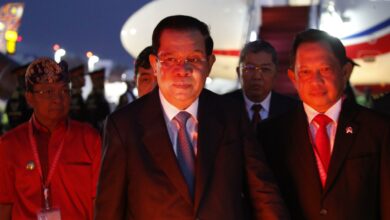‘Nepal’s transitional justice bill designed to shield civil war criminals’

Kathmandu, Mar 24 (EFE).- Three global rights groups Friday said a bill to amend the transitional justice legislation for Nepal conflict victims was designed to shield alleged perpetrators of serious crimes during a decade-long civil war.
Amnesty International, Human Rights Watch, and the International Commission of Jurists said in a joint statement said the amendment bill did “not fully meet” the domestic and international legal obligations and would not provide justice for victims if adopted in its current form.
The Bill for the Amendment of the Investigation of Enforced Disappeared Persons, Truth and Reconciliation Commission Act (2014), widely referred to as the transitional justice bill, was presented to parliament on Mar.19, 2023.
“The bill, if adopted as currently formulated, will not adequately provide for the effective prosecution of serious crimes under international law,” the statement said,
“The government has failed to adequately consult conflict victims about the content of the draft legislation, seriously undermining the credibility of its current approach.”
More than 15 years after the end of the 1996-2006 civil war that pitted Maoist guerrillas against the Hindu monarchy, transitional justice remains a “long overdue and desperately needed” issue, the non-profits said.
The rights groups urged the Nepal government to revise the draft to comply with Nepal’s Supreme Court rulings and international human rights law and standards.
They said the revision process must include adequate consultation with conflict victims about the content of the proposed legislation.
“Key provisions of this bill appear to be designed to shield alleged perpetrators from prosecution for some of the most serious crimes under international law,” said Dinushika Dissanayake, Amnesty International’s deputy regional director for South Asia.
“If it is rushed through parliament without significant changes, it cannot be the basis for a process that has the support of conflict victims, nor legal credibility at home or abroad.”
The latest draft, presented to parliament by the recently elected coalition government headed by the Maoist leader Pushpa Kamal Dahal, fails to address most of the concerns identified in July 2022 by victims’ groups, lawmakers, and human rights experts.
The statement alleged that the Maoist armed group and government security forces committed “serious human rights violations” during the armed conflict in Nepal from 1996 to 2006. EFE
sp-ssk





